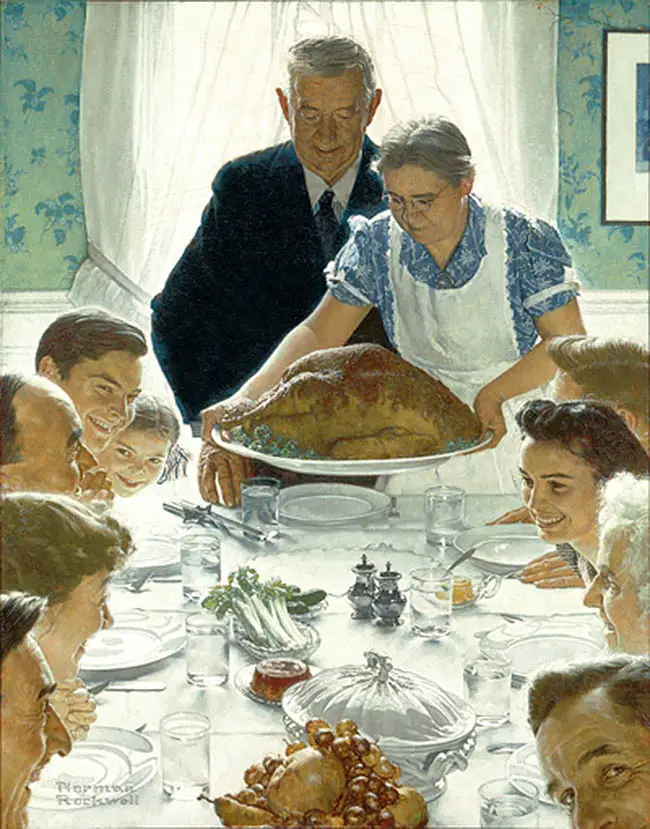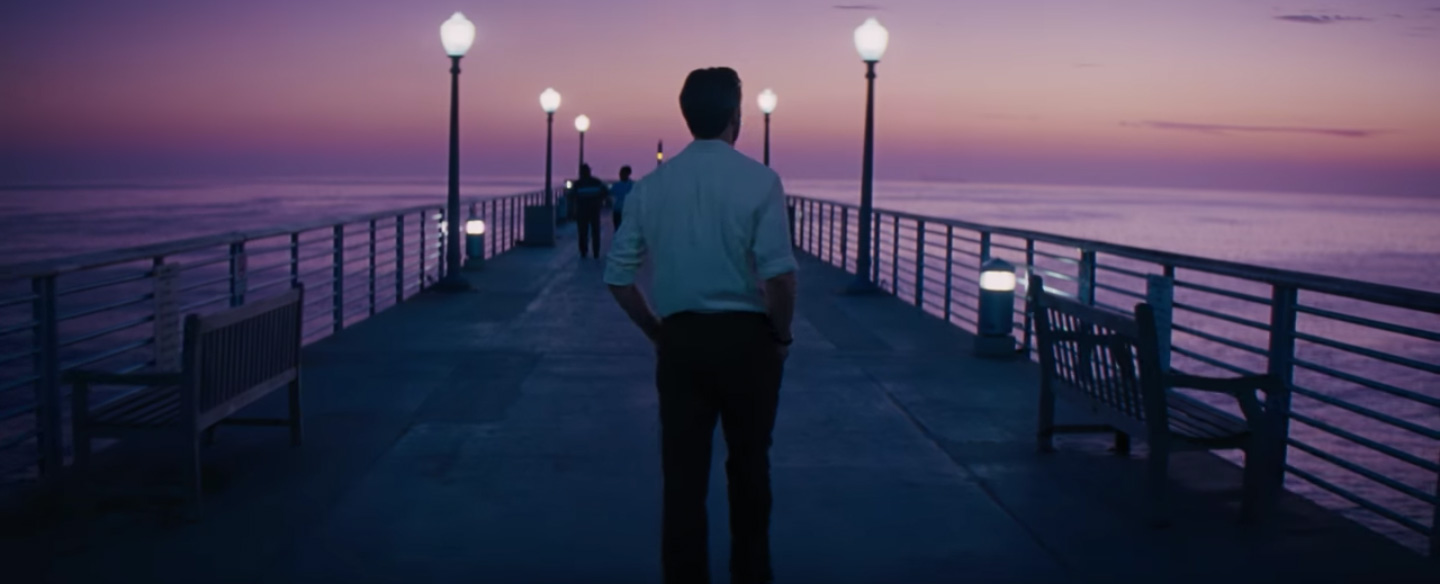
Thanksgiving has always been a holiday with a dubious history. You start at the foundation: the simple and heart-warming story of two cultures coming together to celebrate and give thanks. I remember cartoons of Pilgrims and their buckled hats and shoes sitting next to Wampanoag Indians in feathered headdresses. Then, layers of complexity. I learned that the hats did not have buckles and that the Wampanoag did not traditionally wear headdresses. I learned that Thanksgiving was an isolated moment suspended in a long history of violence that ended with one culture almost destroyed by the other. From there, the spirit of Thanksgiving has been appropriated for various causes from briefly uniting a nation divided by a Civil War to boosting holiday sales during the Great Depression. Thanksgiving has never been as all white, small town American idyllic as a Norman Rockwell painting would suggest. It is shades of grey and blood with a splash of commercialism.

Perhaps then the perfect Thanksgiving story is not the first one of Pilgrims and Native Americans sitting around a table. It is not even the story of today, the one of parades and football games and giant, over-fed turkeys. The perfect Thanksgiving story is one set in the distant future. Written by George Saunders, The Semplica- Girl Diaries tells the story of one American family struggling to keep up appearances. Like any father, the main character wants the best for his two daughters. He wants them to believe anything is possible. He wants them to live without the financial limitations that comes with his middle-class job. But at the same time, he exhorts the teachings of Thanksgiving, to be grateful for what you already have. Saunders presents two sides of America that are constantly at odds. Yet, both are quintessential to our history, inevitably tied together. The myth of Thanksgiving cannot be separated from the pursuit of constant expansion and Manifest Destiny. They are part of the same hazy American dream, one that we seem to be constantly pursuing without even realizing what it means. The protagonist of The Semplica-Girl Diaries, at first, doesn’t seem to realize the depths of his indoctrination. Perhaps that is the scariest thing. The way that we are told stories as children about the way life works, and how that story persists no matter what we are taught afterwards. That is why the Thanksgiving story remains so powerful. It reminds us of simpler times where differences could be resolved, at least for a day, with a few plates of mussels and some mashed-up corn. It allows us to ignore the war that came afterwards, the messiness of conflict. It gives us some semblance of redemption for past sins and perhaps forgiveness for future ones. We give thanks for what we have on one day, and return to our old pursuit of bigger and better on the very next day. It is no accident that Black Friday evolved as a secondary Thanksgiving tradition. As much as we would like to believe that we are grateful for what we have, there is also an instinctual urge for more. Like the father in the story, I am not sure that I can let go of that horizon that always seems to promise more. I was steeped in the belief that I could do more if I just reached a little further. That seems to be a hunger that not even endless platefuls of turkey and mashed potatoes could satisfy.






